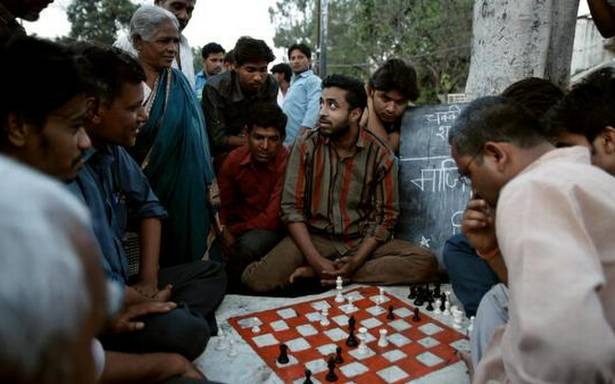
Name of the film Turup
Directed by Ektara Collective
Year 2017
CountryIndia
Duration72 mins
LanguageHindi
About the film
In the neighbourhood, chess is a popular pass time, with roadside games bringing together men from different strata. Their pawns include morality and religion, causing social and political tensions to erupt when a tournament gets underway. But the men are only the most visible players. Against this simmering backdrop, a domestic worker with a secret hobby, a young woman in love and a former journalist struggling with married life must make their moves with care. When caste, class, religion and gender come into play, there are boundaries to be negotiated, and the very rules of the game stand challenged.
Director’s Note
Turup looks at the contemporary issues of caste, class, gender and growing right wing vigilantism prevalent in the country (India) today. It also brings out resistance and solidarities existing within these realities that quietly yet resolutely subvert the growing repression in their own manner. This film has been made collectively by Ektara Collective over a period of a year. It was made along with the residents of different working class settlements living in Bhopal, Madhya Pradesh, India. All of the cast and much of the crew were from the settlements. Other technical and non-technical people came from across the country to become a part of the film. The process of making the film was a collaborative and evolving one where ideas about the script, dialogues, shoot, edit and music were shared, finalised and eventually executed. The film thus is a product of collective effort where each person involved has contributed her/his own unique vision, skill and perspective to it, guiding and often maneuvering it to reach its logical conclusion.
Director Biography
Ektara Collective is an independent, autonomous, non-funded group of individuals. The main purpose of the group is to combine creative efforts and imagination and collaborate with local communities to make films that are content-wise and aesthetically located in their subjective, contextual realities and experiences. Since the vision is a collective one, the directorial acknowledgements are also shared and taken as Ektara.


